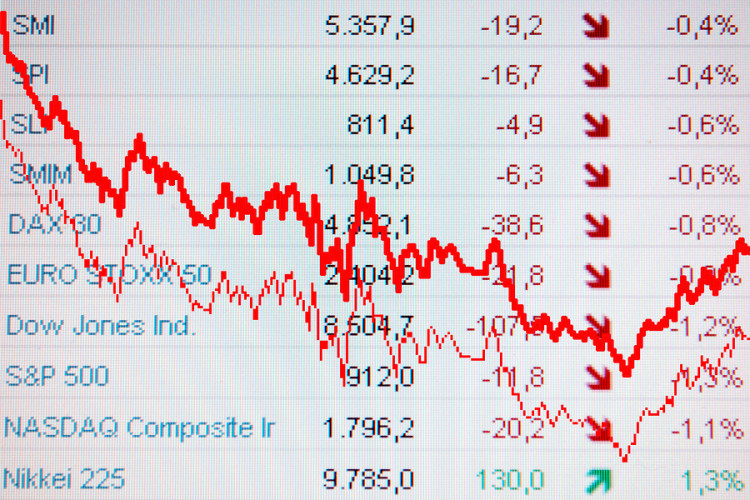Investors Should Be Thankful for the Stocks Selloff: Tim Duy

published Feb 8, 2018 9:24:23 AM, by Tim Duy
(Bloomberg Prophets) —
The meltdown on Wall Street in recent days might have an upside: It could help extend the length of the expansion.
I had three primary concerns about the extent of the equity rally of 2017 and the beginning of 2018. The first was that it could shift the Federal Reserve in a hawkish direction. The second was that it would extend beyond Wall Street to Main Street, heightening the risk that a market crash would spread through the broader economy. The third was that a selloff would derail the Fed’s interest-rate hike plans and even force it to cut rates. A more modest pace of gains would help ease these worries.
The Fed wisely resists using monetary policy to counter asset-price run-ups. Rate policy is simply too blunt a tool. Indeed, the central bank may not be able to quell a market rally without pushing the economy into a recession. Best then to try to address elevated asset prices with regulatory action that limits the buildup of systemic risks in the financial system, primarily excessive amounts of leverage.
Still, there is a secondary concern about the Fed’s rate hikes to date, which have done little if anything to reduce financial accommodation. The relentless rise in stock prices contributed to these concerns. Without a tightening of financial conditions, the Fed might perceive a need to accelerate the pace of rate increases to restrain inflationary pressures. Unfortunately, a speeding-up of the pace of rate hikes this late in the cycle would raise the probability of a policy mistake and recession. The recent market decline reduces financial accommodation, leaving the Fed more comfortable with maintaining a gradual pace of rate hikes, thus reducing the possibility of a policy error.
Another worry is that high asset price valuations, if they are left to build long enough, will feed through the economy in the form of unbalanced and excessive real growth. A market crash would then rip through the broader economy as an intense recession. This was the experience of the past two cycles. To date though, this cycle has not been characterized by either excessive overall growth or a substantial bubble of activity in any one sector. The expansion has been fairly broad-based.
Taking some steam out of equity prices at this juncture would limit the likelihood of an asset price bubble bleeding into the economy more deeply. By extension, a decline in asset prices would be less damaging to the economy. Moreover, the stock market pull-back also limits the likelihood that the economy would overheat. That, too, would help restrain the Fed to a gradual pace of rate hikes.
And, finally, while the Fed can respond to small shocks now, it will probably have limited room to stimulate the economy via lower rates when the next recession rolls around. It would be optimal if policy makers could preserve their ammunition until then.
If equity markets maintain their relentless rise, the odds of a 1987-style crash would also increase. Indeed, this past week was almost like a mini-1987 (this seems to be the best market analogy). A crash of that magnitude would probably represent an excessive tightening of financial conditions, raising the risk of slowing growth or even recession.
The Fed currently has enough room to cut rates in response in a modest or even moderate shock. The five rate hikes already in the bag are more than enough to match the central bank’s response to the 1987 crash or the 1997 Asian financial crisis. But using up that room now would leave the Fed with little but quantitative easing if the economy was faced with another negative shock in the near term. If taking down equity prices a notch now prevents a greater decline later, the Fed will again be able to maintain a gradual pace of rate hikes and thus be left with more room to stimulate the economy when the next negative shock hits.
There is reason to suspect that the Fed would welcome a more modest pace of activity on Wall Street. A correction could be what is needed to keep the party going.
Tim Duy is a professor of practice and senior director of the Oregon Economic Forum at the University of Oregon and the author of Tim Duy’s Fed Watch.
To contact the author of this story: Tim Duy at duy@uoregon.eduTo contact the editor responsible for this story: Max Berley at mberley@bloomberg.net
copyright
© 2018 Bloomberg L.P



No Comment